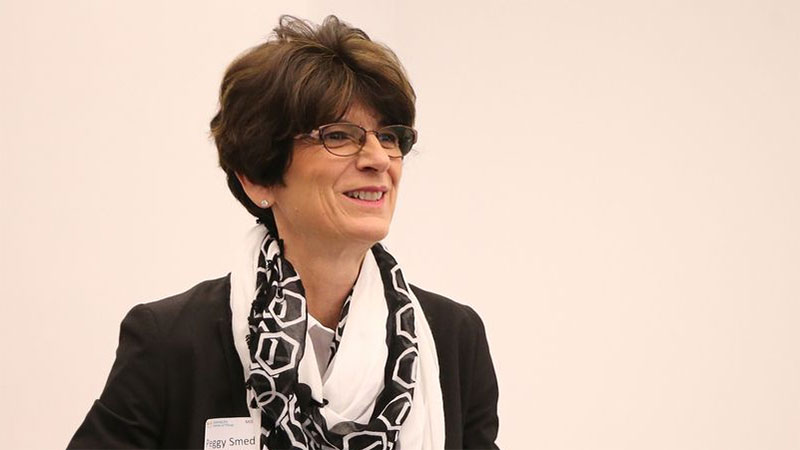Digital Advances Enable a More Sustainable Tomorrow

We are depleting our natural resources in an all-out-effort to enjoy our modern comforts. But our single-use throwaway culture isn’t sustainable. We need to find a solution. Can technology be the great enabler as we imagine and engineer the solutions to the planet’s challenges?
To answer this question, we first must understand the metrics for measuring initiatives to improve sustainability. Some answers can be found in the way that smart companies are mastering technology such as AI (artificial intelligence), digital twin, the IoT (Internet of Things), and more, to create new solutions that leverage product design and expanded infrastructure for the ecosystem.
The Paris Agreement
The Paris Agreement, an international treaty on climate change signed by 196 countries in 2015, is meant to strengthen the resolve of countries across the world to reduce the rise in global temperature during this century. The goal is to keep it from rising 2 degrees Celsius above pre-industrial levels.
Perhaps again we need to take a step back. In 2015, there was huge support for the Paris Agreement, as countries vowed to limit the planet’s warming to 1.5 Celsius (2.7 degrees Fahrenheit). Many nations willingly participated in order to improve the Earth’s dangerously warming temperatures.
Today, however, some of these nations are discovering that these targets are extremely ambitious. Slowing the rising temperature requires not just a continual shift in thinking, a major shift from fossil fuels and a commitment from all countries, but a transformational change. In addition, we need to consider how technology will help track such metrics and analyze the data to help us reach our targets.
What companies are doing
Adding transparency and other tools to manage and monitor sustainability processes will have a positive impact. Let’s look at an example. The Network of Central Banks and Supervisors for Greening the Financial System (NGFS) is a collaborative effort that was created to green the financial system and improve the efforts of the financial community in achieving the Paris Agreement goals. Part of this initiative is to monitor the financial industry’s role in managing climate risks and explore the available options of mobilizing capital for green and low-carbon investments.
The NGFS has recently released a report that reveals financial institutions are increasingly incorporating climate and sustainability factors into their risk assessment methodologies and decision-making processes. Further, it indicates mobilization of capital toward environmentally friendly activities.
Technology has enhanced disclosure and reporting on these initiatives, improved risk-management practices, increased demand for green assets and allowed opportunities in the low-carbon space to become more visible.
Here are five big takeaways to consider:
- Develop and impose reporting standards– There is a need for financial authorities to support global disclosure frameworks. These frameworks must align with efforts to establish a comprehensive corporate disclosure standard that supports the Task Force on Climate-Related Financial Disclosures’ recommendations and the development of a global set of sustainability reporting standards.
- Promote sustainability within spheres of influence– Multinational financial institutions need to adopt and promote global voluntary sustainability standards and disclosure frameworks in the different jurisdictions in which they operate.
- Enhance transparency– Both credit as well as environmental, social and governance (ESG) rating providers need to enhance transparency surrounding their methodologies, disclosing the criteria they use to assess the materiality of climate and sustainability factors, the manner in which these are measured and incorporated into ratings, and the weights they assign to them.
- Require consideration of sustainability factors– There is a need for regulators to require financial institutions to consider material climate and sustainability factors as financial factors. Financially material climate and sustainability factors should be part of the fiduciary duty of asset managers.
- Mobilize toward green investments– National and multilateral development banks need to strengthen their support to mobilize capital toward green investment projects, particularly in developing and emerging markets.
As countries, along with business sectors, attempt to meet the challenges of The Paris Agreement, we have the ability to organize for a common purpose and to apply innovative technologies to end environmental destruction. Tapping into digital transformation and innovation can move us toward a greener and cleaner world.
Written by Peggy Smedley. Have you read?
Best Hospitality And Hotel Management Schools In The World For 2021.
Best Fashion Schools In The World For 2021.
Best Business Schools In The World For 2021.
Best Medical Schools In The World For 2021.
Follow CEOWORLD magazine on Facebook, Twitter, Instagram, and LinkedIn.
Bring the best of the CEOWORLD magazine's global journalism to audiences in the United States and around the world. - Add CEOWORLD magazine to your Google News feed.
Follow CEOWORLD magazine headlines on: Google News, LinkedIn, Twitter, and Facebook.
Copyright 2025 The CEOWORLD magazine. All rights reserved. This material (and any extract from it) must not be copied, redistributed or placed on any website, without CEOWORLD magazine' prior written consent. For media queries, please contact: info@ceoworld.biz








